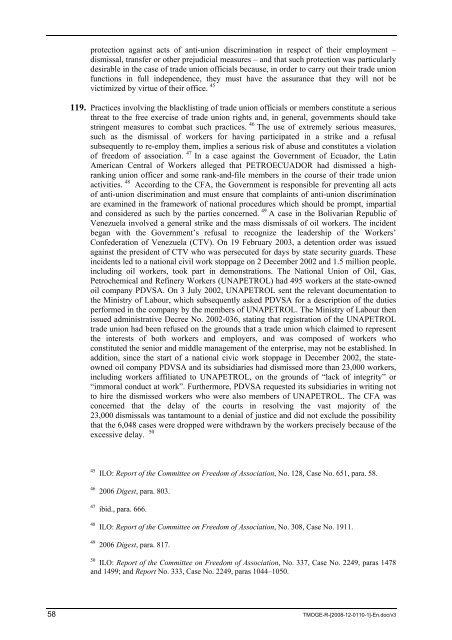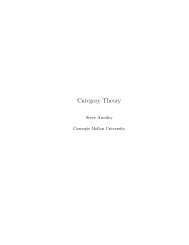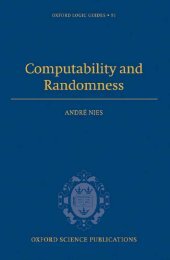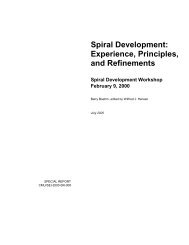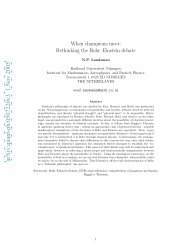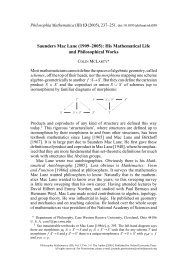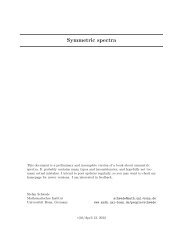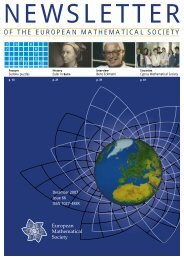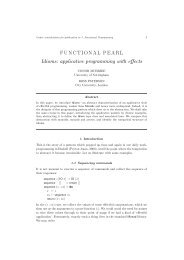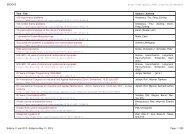wcms_161662
wcms_161662
wcms_161662
You also want an ePaper? Increase the reach of your titles
YUMPU automatically turns print PDFs into web optimized ePapers that Google loves.
protection against acts of anti-union discrimination in respect of their employment –<br />
dismissal, transfer or other prejudicial measures – and that such protection was particularly<br />
desirable in the case of trade union officials because, in order to carry out their trade union<br />
functions in full independence, they must have the assurance that they will not be<br />
victimized by virtue of their office. 45<br />
119. Practices involving the blacklisting of trade union officials or members constitute a serious<br />
threat to the free exercise of trade union rights and, in general, governments should take<br />
stringent measures to combat such practices. 46 The use of extremely serious measures,<br />
such as the dismissal of workers for having participated in a strike and a refusal<br />
subsequently to re-employ them, implies a serious risk of abuse and constitutes a violation<br />
of freedom of association. 47 In a case against the Government of Ecuador, the Latin<br />
American Central of Workers alleged that PETROECUADOR had dismissed a highranking<br />
union officer and some rank-and-file members in the course of their trade union<br />
activities. 48 According to the CFA, the Government is responsible for preventing all acts<br />
of anti-union discrimination and must ensure that complaints of anti-union discrimination<br />
are examined in the framework of national procedures which should be prompt, impartial<br />
and considered as such by the parties concerned. 49 A case in the Bolivarian Republic of<br />
Venezuela involved a general strike and the mass dismissals of oil workers. The incident<br />
began with the Government’s refusal to recognize the leadership of the Workers’<br />
Confederation of Venezuela (CTV). On 19 February 2003, a detention order was issued<br />
against the president of CTV who was persecuted for days by state security guards. These<br />
incidents led to a national civil work stoppage on 2 December 2002 and 1.5 million people,<br />
including oil workers, took part in demonstrations. The National Union of Oil, Gas,<br />
Petrochemical and Refinery Workers (UNAPETROL) had 495 workers at the state-owned<br />
oil company PDVSA. On 3 July 2002, UNAPETROL sent the relevant documentation to<br />
the Ministry of Labour, which subsequently asked PDVSA for a description of the duties<br />
performed in the company by the members of UNAPETROL. The Ministry of Labour then<br />
issued administrative Decree No. 2002-036, stating that registration of the UNAPETROL<br />
trade union had been refused on the grounds that a trade union which claimed to represent<br />
the interests of both workers and employers, and was composed of workers who<br />
constituted the senior and middle management of the enterprise, may not be established. In<br />
addition, since the start of a national civic work stoppage in December 2002, the stateowned<br />
oil company PDVSA and its subsidiaries had dismissed more than 23,000 workers,<br />
including workers affiliated to UNAPETROL, on the grounds of “lack of integrity” or<br />
“immoral conduct at work”. Furthermore, PDVSA requested its subsidiaries in writing not<br />
to hire the dismissed workers who were also members of UNAPETROL. The CFA was<br />
concerned that the delay of the courts in resolving the vast majority of the<br />
23,000 dismissals was tantamount to a denial of justice and did not exclude the possibility<br />
that the 6,048 cases were dropped were withdrawn by the workers precisely because of the<br />
excessive delay. 50<br />
45 ILO: Report of the Committee on Freedom of Association, No. 128, Case No. 651, para. 58.<br />
46 2006 Digest, para. 803.<br />
47 ibid., para. 666.<br />
48 ILO: Report of the Committee on Freedom of Association, No. 308, Case No. 1911.<br />
49 2006 Digest, para. 817.<br />
50 ILO: Report of the Committee on Freedom of Association, No. 337, Case No. 2249, paras 1478<br />
and 1499; and Report No. 333, Case No. 2249, paras 1044–1050.<br />
58 TMOGE-R-[2008-12-0110-1]-En.doc/v3


